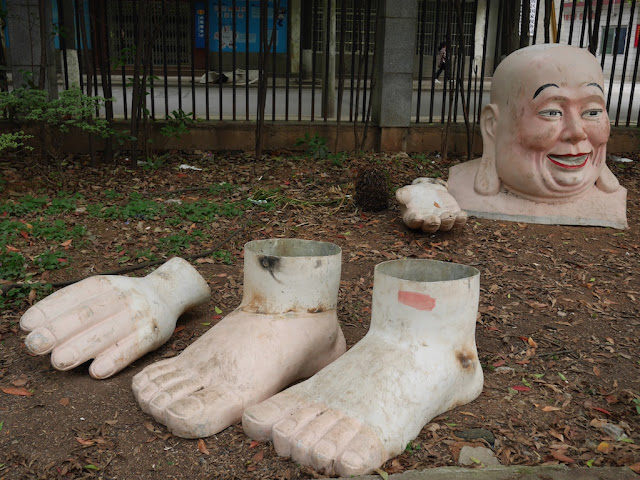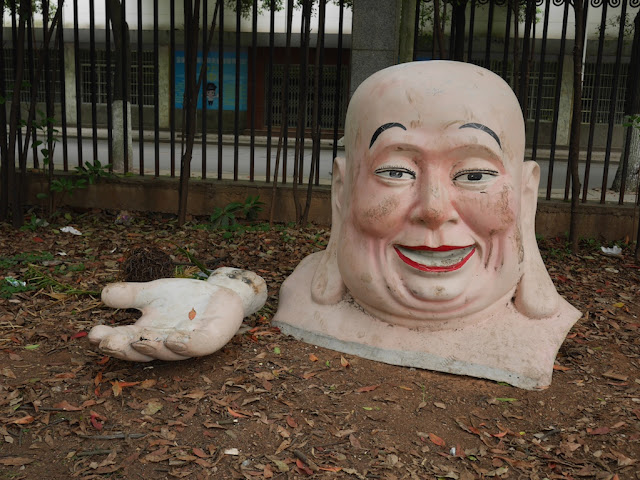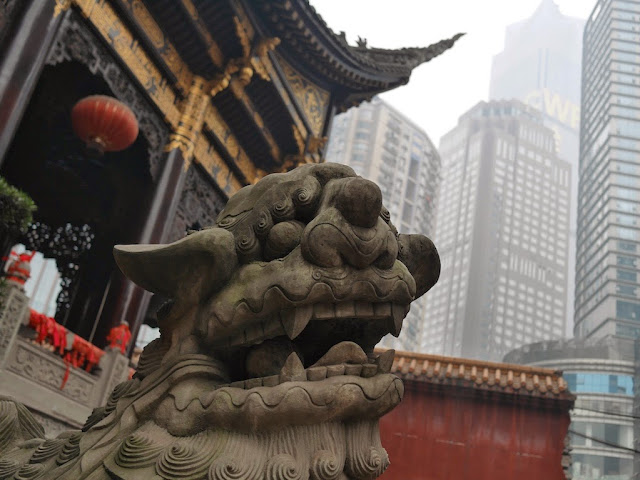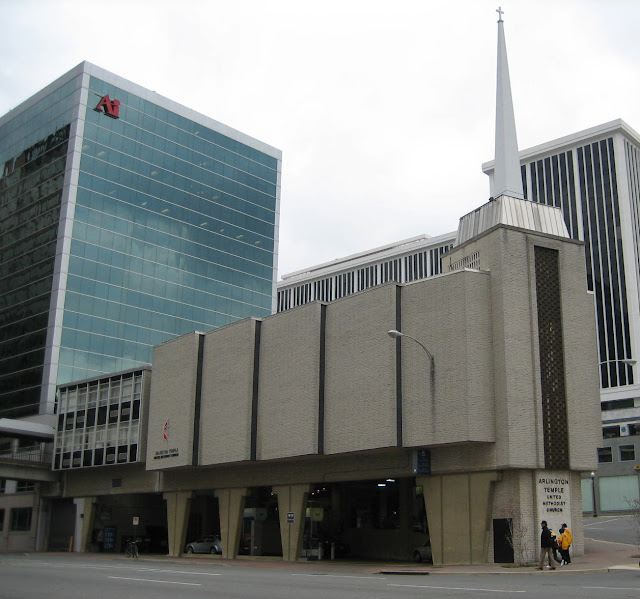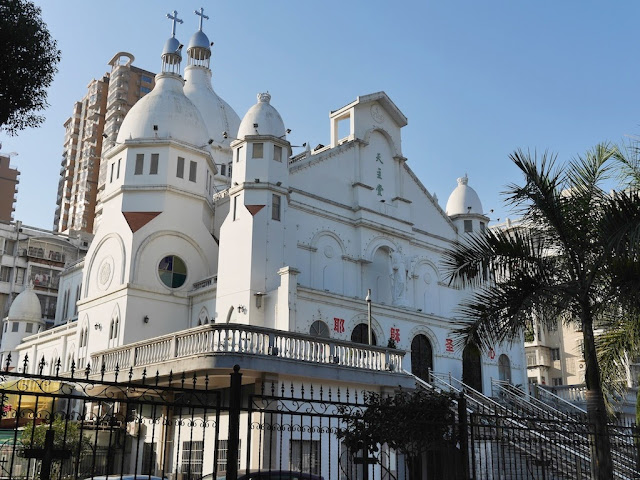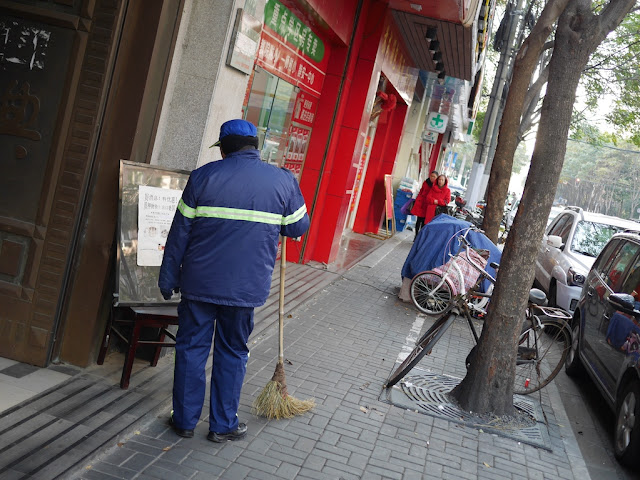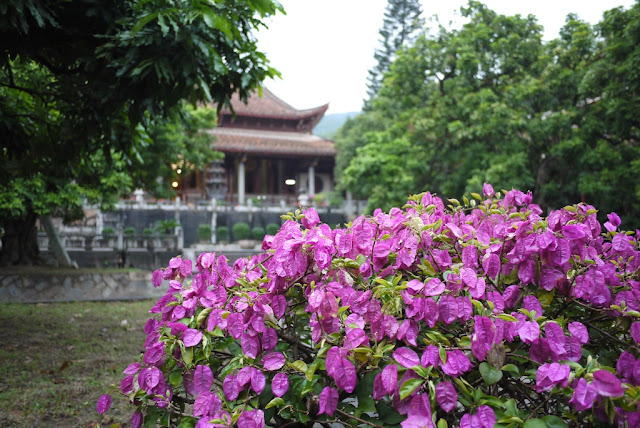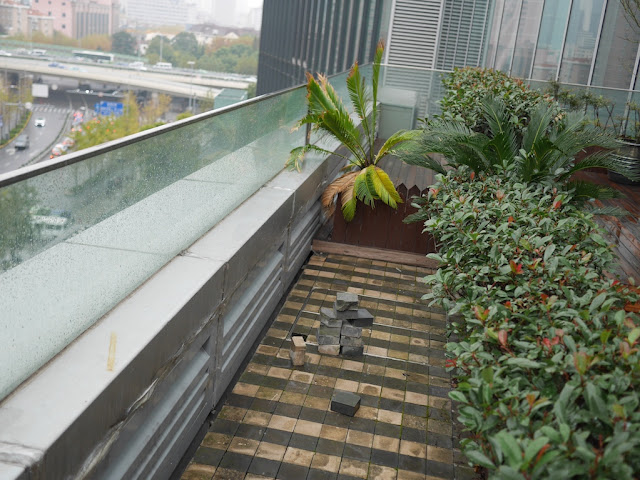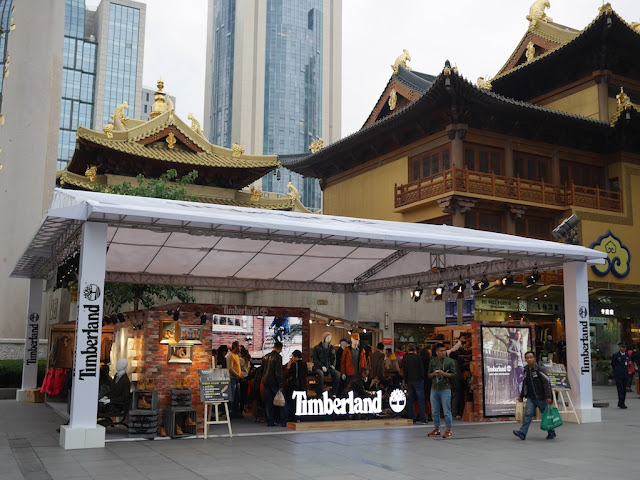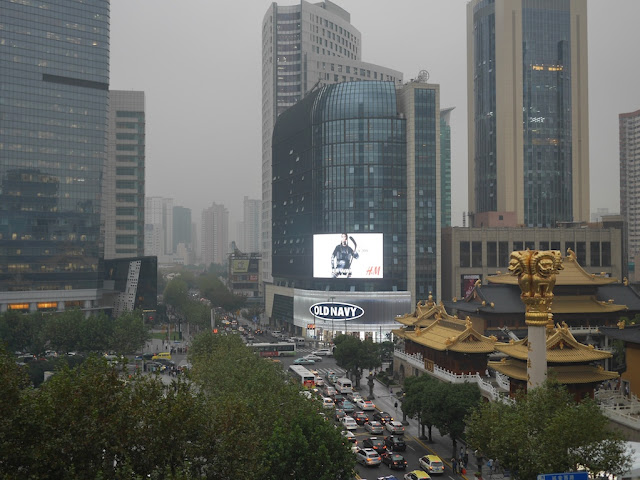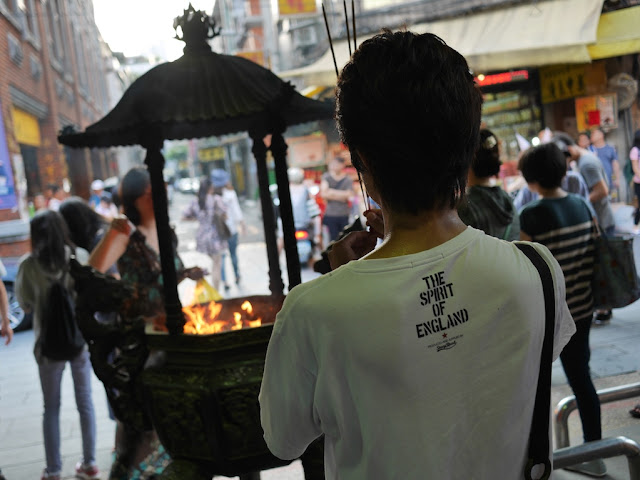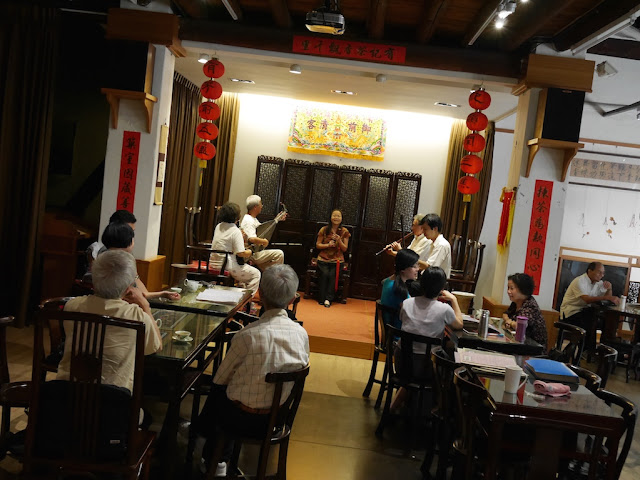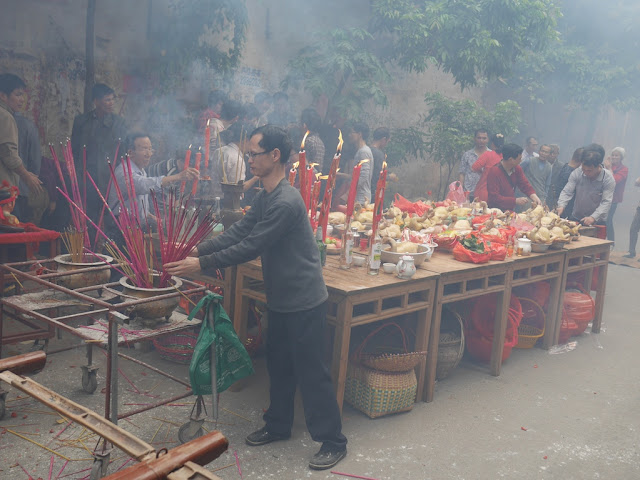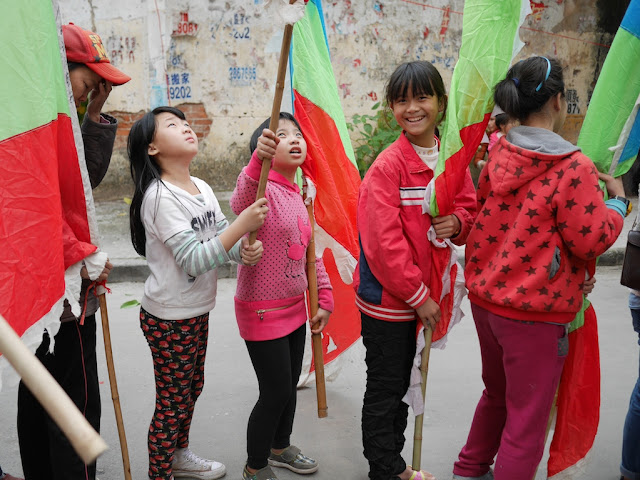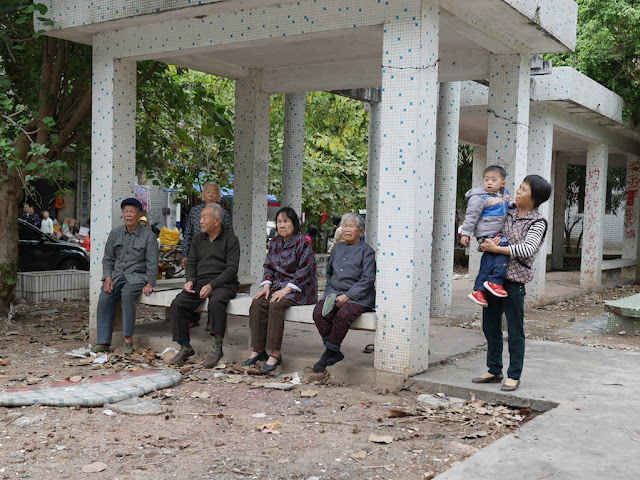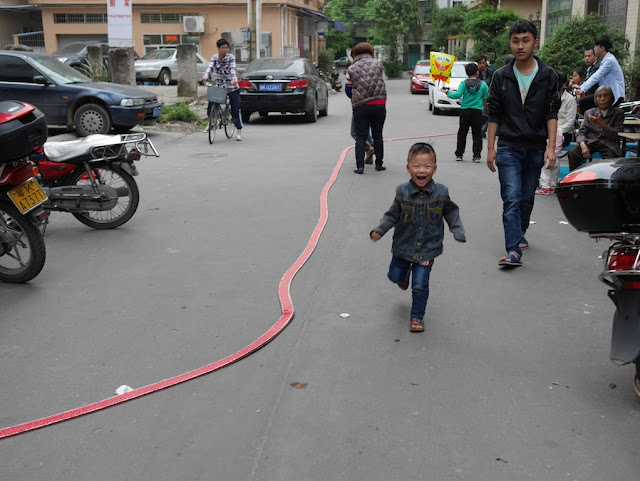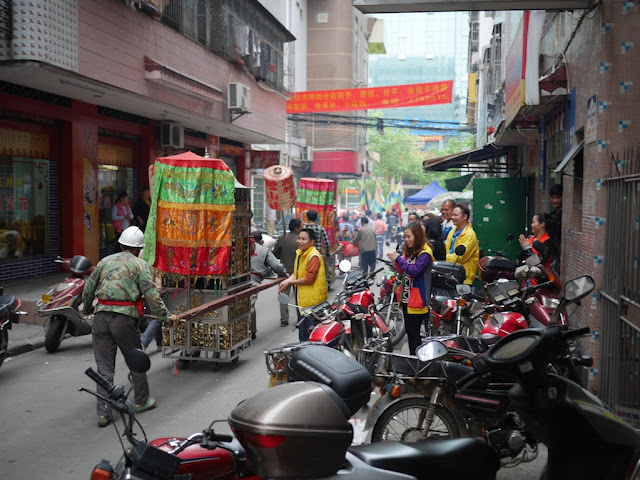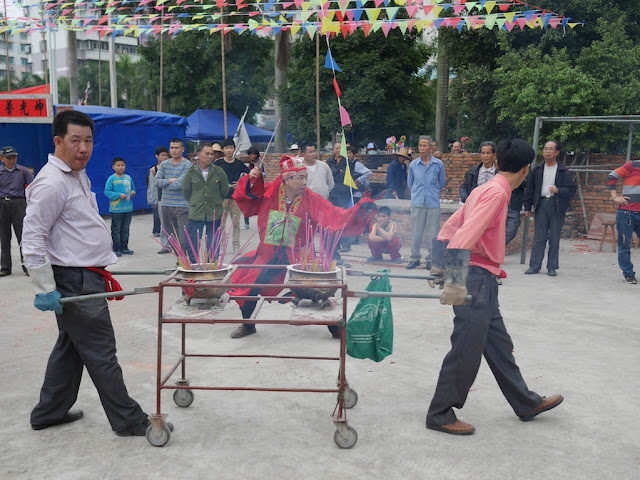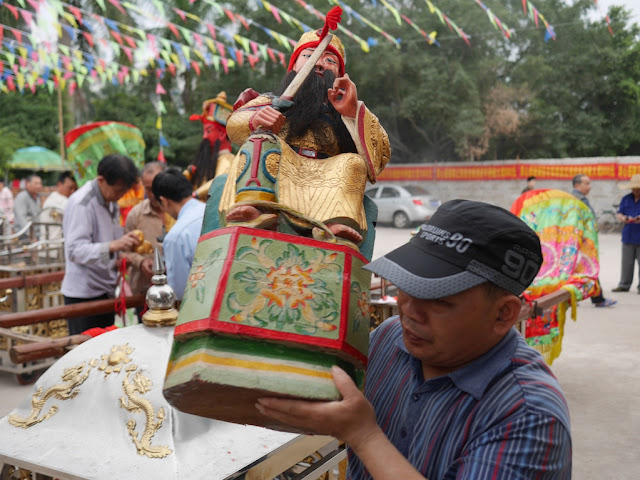Two days ago on Sunday, as I enjoyed a bowl of dumplings along an alley in Maoming, Guangdong province, I heard traditional Chinese music slowly growing louder and louder. Kids nearby were clearly excited and soon a Gods Parade passed by.
The parade was part of the Nian Li Festival (年例节). Nian Li is a local holiday celebrated in Maoming (and perhaps Zhanjiang) and it can't be found elsewhere, including Maoming's neighbor to the east,
Yangjiang.
According to Newsgd.com, during the Nian Li Festival people make sacrifices to gods, pray for good luck, and feast with relatives and friends. The Gods Parade and entertaining programs are also part of the festival.
After watching the parade pass, I decided a change in my day's plans was in order. So I finished my dumplings and tracked down where the parade had made a temporary stop. There I found a scene enshrouded in smoke from exploding firecrackers.
After the air cleared, people prayed.
Others placed many more firecrackers to set off.
Some were curious about my presence since there aren't many foreigners in Maoming. I met a number of people, including a few of the parade's flag carriers.
After the prayers finished, it was time to line up.
And they headed to another destination. I was told they went to 11 in total.
The parade had occasional onlookers.
Once at the next destination, they set up.
And things went mostly as before.
This time, though, one kid was super excited about the fireworks.
Again the parade continued on, sometimes stopping traffic.
After a long walk, we arrived at the final destination, a temple.
A variety of rituals took place. In one a man exhibited some fine attack skills.
To conclude, after a set of exceptionally loud explosions, the gods which had been paraded around were returned to the temple.
Later in the evening there there was a Chinese opera performance on a stage set up next to the temple. I couldn't make it that night, but I did catch some of the following night's performance.
For me, the holiday was another chance to experience traditional Chinese culture and see another example of how China can differ from one place to the next. There's always more to discover. Even if this is the first mention of the Nian Li Festival you've ever seen, you already know more than I did before I happened to be eating dumplings at the right place at the right time.
